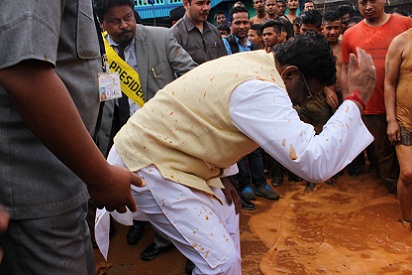
SHILLONG, JULY 13: Behdienkhlam, a four-day festival of the Jaintia tribal or pnar people in Meghalaya, concluded on
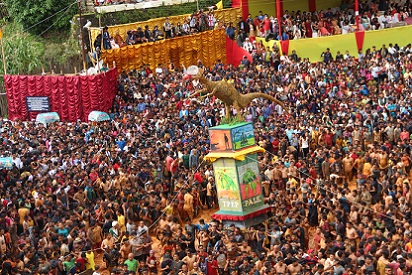
Wednesday amidst thousands of faithful taking part.
Revelers were seen participating in a ritualistic expression to overcome the destructive forces of nature including diseases and an invocation to God for a good harvest.
Considered as one of the important festivals of the state, it is celebrated during mid-July every year after the sowing season is over.
“Khlam” means ‘Plague or Pestilence’ and “Beh Dien” means to drive away the plague with sticks and religious fervor.
The main feature of the festival is the making of the “Dein Khlam” and “Khnong”, which are rounded, polished and straight tree trunks, felled from a forest. These trunks are brought to the Jowai town, a district headquarter in the eastern most part of the state, with great fanfare.
Earlier on Wednesday, the ‘Symbud Khnong’ a log of great length was brought and thousands people throng to get a chance to touch it. It is believed that by touching the Khnong, it will protect them from all sorts of sicknesses besides prosperity in their works and businesses.
According to the niamtre faithful, Behdienkhlam is not all about driving away sickness but to also drive away such social evils that are inflicting the society.
The youth from different locality of the town also try out their artistic skills by erecting gaily coloured “rots” 10-40 feet tall structures built of bamboo, coloured paper and tinsel.
The Behdienkhlam ‘rots’ are built on wide ranging social issues – politics, environment protection besides others.
Unlike other years, only twelve rots were on display today at the Aitnar – a sacred pool.
The rots also carries strong message for preservation and protection of the environment and the mother earth besides importance of peace and harmony.
“Earth is in our hand – Go Green, Earth was created for all of us not for some of us” – was seen written in one of the rots.
Another rot which captivate the spectators was on long pending border dispute between Assam and Meghalaya. The rot, which has a cat and a dog on it, depicts that even a dog and a cat can live in peace and harmony.
Besides, a rot also depicted the importance of yoga when it says – “Yoga teaches you how to listen to your body”, while another warns the effect of bad habits – “Alcohol is the mother of all evils”.
The climax of the celebrations is the carrying of a large trunk known as ‘Khnong’ by the niamtre faithful to Aitnar.
People would run towards the Khnong to touch it as it is believe that by touching the Khnong it would bring them good health and prosper in their work and economic life.
Religious rites and sacrifices at the sacred pool precede the immersion ceremony in the early hours of the morning.
The festival was also witnessed by Meghalaya governor V Shanmuganathan and Chief Justice of the Meghalaya High Court, Dinesh Maheshwari besides Home Minister Roshan Warjri, Transport Minister HDR Lyngdoh and PWD Minister Sniawbhalang Dhar and other dignataries.
Addressing on the occasion, the governor in line with the festival said, “All evils must go away and I wish positive vibration to reign.”
Earlier for the first time, the Governor and Chief Justice took the privilege to set their feet in the sacred muddy pool amidst tight security and dancers were seen thronging to greet them.
In the evening ‘datlawakor’, a football match played with a rounded wooden ball, was played between two teams from the upper and lower valleys of the Myntdu River.
The side that wins is believed to be blessed with a good harvest of the year. The Daloi or the traditional chief acts as referee in the match.-By Our Reporter







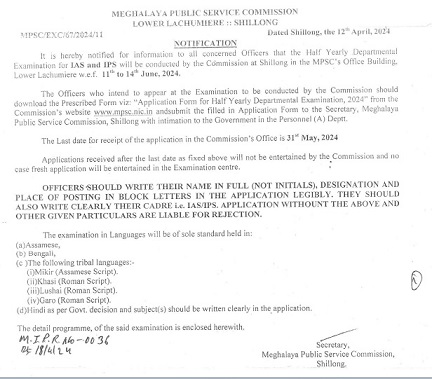
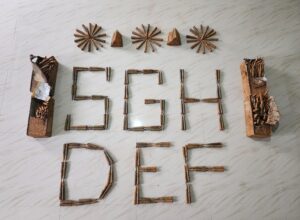


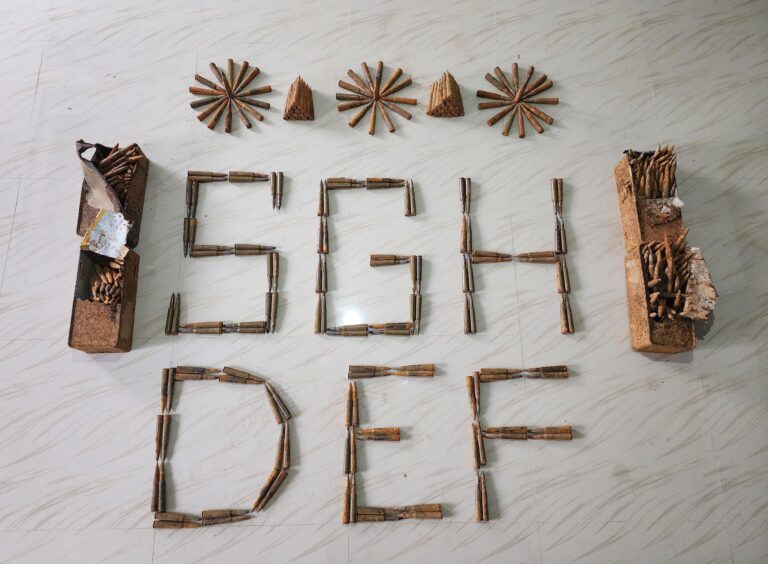
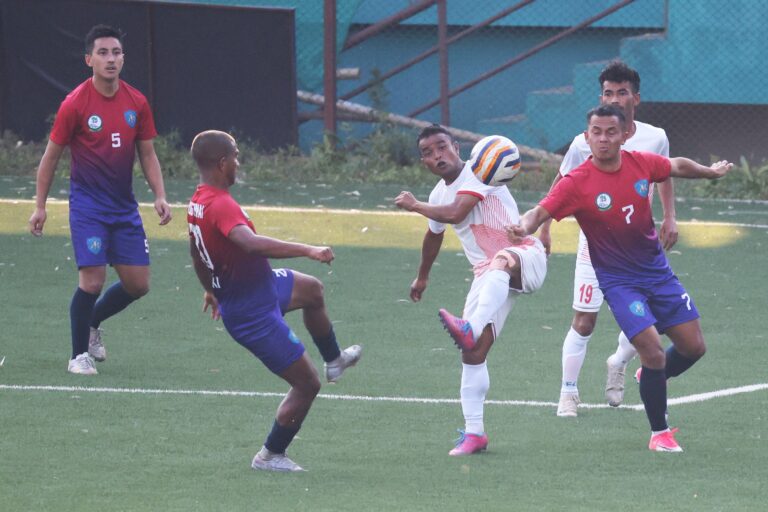
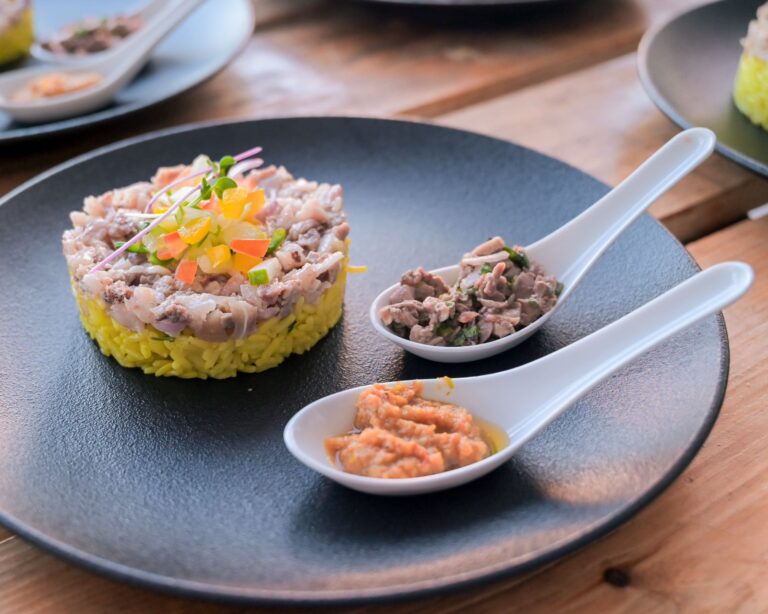
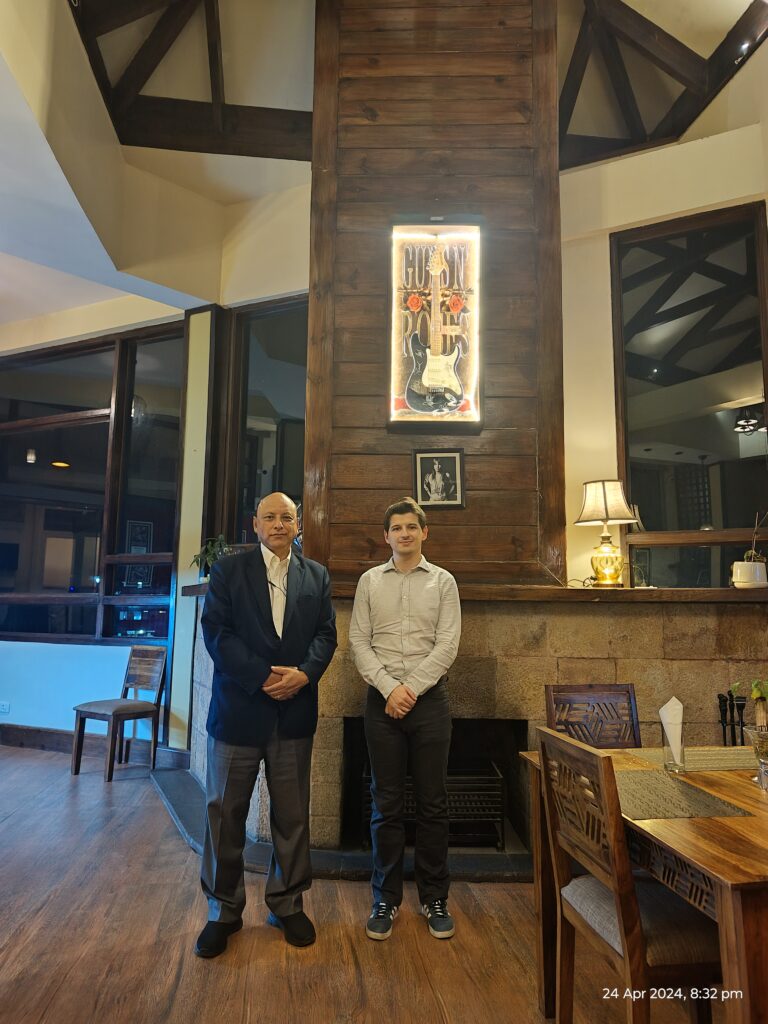
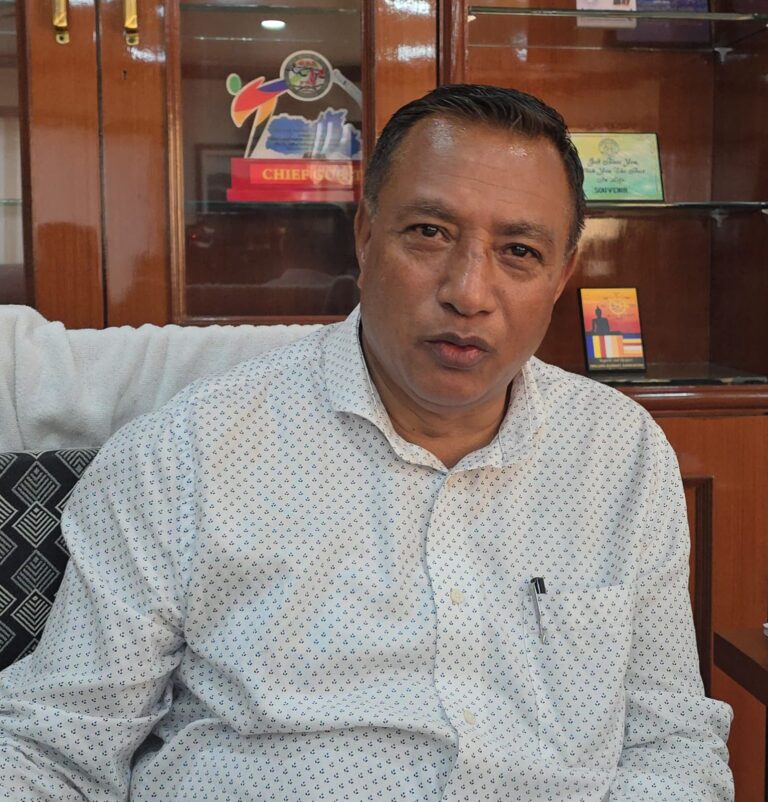
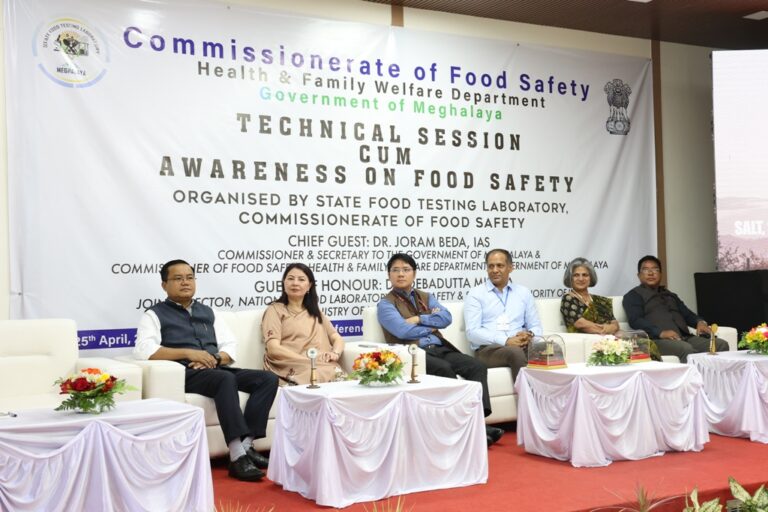
+ There are no comments
Add yours